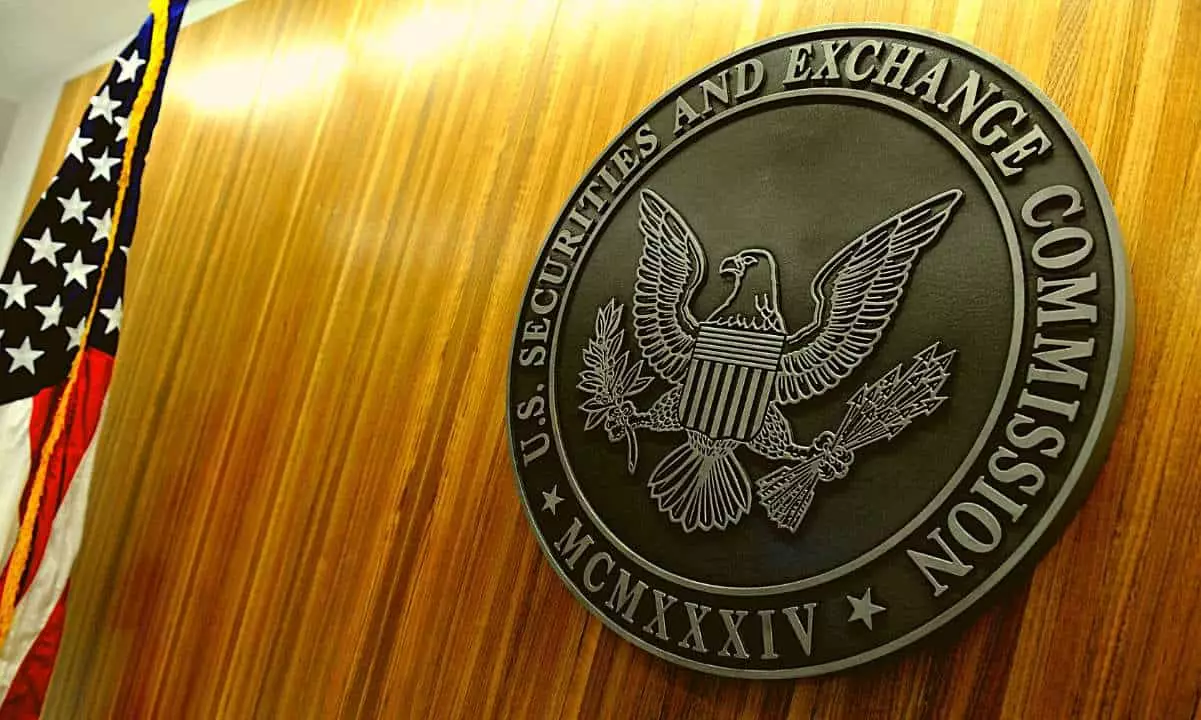The world of blockchain and non-fungible tokens (NFTs) is increasingly coming under regulatory scrutiny, as evidenced by the recent Wells Notice issued to the NFT project CyberKongz by the U.S. Securities and Exchange Commission (SEC). This step reflects not only a direct challenge to CyberKongz but also highlights the complexities faced by NFT projects operating within the current regulatory landscape, which is often ambiguous and rapidly evolving.
The SEC’s Wells Notice, which CyberKongz received on December 16, indicates that the agency is seriously contemplating possible enforcement actions. While it is not an accusation of wrongdoing, it does signal that CyberKongz’s activities could have been interpreted as violating federal securities regulations. The unique aspect of this situation lies in the SEC’s concerns about the functionality of CyberKongz’s ERC-20 token in conjunction with its blockchain games. The agency needs to determine whether those tokens should be classified as securities – a designation that would significantly impact how the project operates and is perceived in the market.
CyberKongz’s management expressed their disappointment with the regulatory process, criticizing the SEC for the lack of clarity regarding their regulations. This sentiment is indicative of a broader frustration felt by many NFT and blockchain projects, as the regulatory landscape remains unclear and often inconsistent. The CyberKongz team has openly stated their commitment to fighting for clearer guidelines, suggesting that they believe the SEC’s involvement is a pivotal moment that could reshape the sector.
The implications of the SEC’s inquiry extend beyond CyberKongz itself; they have the potential to reverberate throughout the entire Web3 gaming industry. The central question raised by the SEC involves whether the integration of ERC-20 tokens within blockchain games equates to a securities offering. If the SEC rules against CyberKongz, it may set a precedent that could restrict how NFT projects operate within the increasingly competitive gaming landscape, inhibiting innovation and limiting the entrepreneurial potential of developers.
Moreover, CyberKongz faces scrutiny over its contract migration executed in April 2021, which the SEC interpreted as a token sale. The project team has been adamant that this contract migration was a routine operational process rather than a primary sale of tokens. This failure to adequately distinguish these actions raises concerns about the SEC’s understanding of the intricacies involved in blockchain transactions and NFT dealings. As stated by the CyberKongz team, if a discrepancy exists regarding basic operational aspects such as contract migration versus sales, it casts doubt on the overall regulatory framework and how NFT projects globally could be impacted going forward.
CyberKongz is not an isolated case; it joins an expanding list of NFT and blockchain projects facing similar scrutiny from the SEC. Entities like Coinbase, Ripple, and OpenSea have all encountered their own regulatory challenges, signaling a broader trend of increasing oversight within the crypto space. The trend demonstrates the SEC’s heightened focus on distinguishing between different types of digital assets and their classification under existing securities laws.
This scrutiny not only underscores the regulatory uncertainty that NFT projects face but also exemplifies the need for a more defined regulatory framework that accommodates the unique characteristics of these digital assets. Many stakeholders, including developers, investors, and consumers, are left to navigate murky waters with little guidance regarding compliance and operational sustainability.
Despite the challenges posed by the Wells Notice, CyberKongz reassured its community of its commitment to advancing its operations and advocating for clearer regulatory guidelines. This resolve reflects a growing trend among NFT projects that are starting to recognize the importance of engaging proactively with regulatory bodies rather than retreating under the pressure of scrutiny.
The ongoing dialogue between NFT projects and regulators is imperative for the future efficacy of blockchain innovation. As more projects interact with the SEC, a more comprehensive understanding must emerge, leading to a framework that protects investors while fostering growth and creativity within the sector. The CyberKongz case may be a potential turning point, catalyzing necessary discussions about the future of NFTs and the viability of the gaming industry in the Web3 era.

